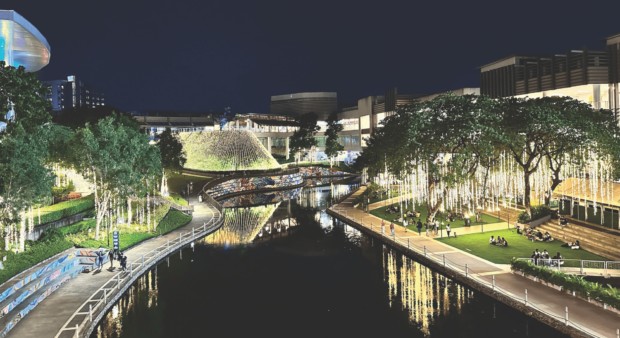July 12—15th Sunday in Ordinary Time
Readings: Isaiah 55: 10-11; Psalm 65, Response: The seed that falls on good ground will yield a fruitful harvest.; Romans 8: 18-23; Gospel: Matthew 13: 1-23
We begin this Sunday a series of parables on the Kingdom of Heaven as central to the mission of Jesus. Some scripture scholars highlight one detail that is of great relevance to our own situation as a Church and as a society as a whole.
Scholars say Jesus brings his message out into the world, so to speak, from the synagogue. It is rather symbolic of our own situation now with a combination of the crisis of the pandemic and the technology available to us.
Our physical gathering as a Church has shifted to a “virtual” and online gathering. In the early days of the lockdown, a meme was circulating online with Satan telling God, “I have shut down your churches.” God responds, “But it has opened my church in the homes.”
In education, the shift is equally radical. The present context is creating a systems-wide shift that is short of creating a shock in the system.
I believe similar shifts are happening in other areas. I just cite these two domains, as these are what I am most familiar with.
Let us reflect on the elements of the Parable of the Sower and the Seed within this context. The three elements I invite you to reflect on are the sower, the seed and the soil.
As we know, the sower is Jesus and those who will continue his mission. The seed is God’s word or message. The soil is us, those who receive or hear God’s word.
Let us reflect on the soil first. We have heard these different types of soil or hearers quite often. I wish to focus on understanding and preparing the soil.
The images used for the different types of hearers are those unable to absorb the word, those with a shallow understanding of the word, those distracted by other concerns and those who bore fruit.
Approach to sowing
While the types remain the same, the root causes of why they are each in their respective states of mind, heart and soul are quite different. Perhaps this calls us to reflect on the approach to sowing or mission by understanding the world they—and all of us—live in.
This is true for priests, teachers, parents, mentors, for all who journey and guide others. Now, more than ever, understanding the context of the “hearers” is of core importance.
For example, in a recent talk I attended for the clergy, the speaker, who has been very successful in his online ministry even prior to the pandemic, talked about being global in one’s perspective of online ministry as this is open to anyone, from anywhere.
This tells us of the vastness of “the field” now for the sower, given the reach of technology and the effects of the crisis of the pandemic, when more people go online for many things.
I think many hearers have turned to prayer and to the celebration of the Mass online or via TV. There are many, too, attending or watching online talks on various spiritual and religious topics. All of these are signs of an interest, a thirst for spirituality and finding ways to live out their faith.
The sower, the missionary, the preacher who continues Jesus’ mission is the one who perhaps will have the “greatest shift.”
The message, the word, the mission remains the same—it is eternal, forever, unchanging—but the context changes in multiple and dynamic ways.
Thus, understanding the context of the hearer will help us address their preparation or formation, and our own preparation to represent the word in an effective way.
Personal connection
The irony of going “global” with the field (the hearers) is that at the same time, we need to create a personal connection in the sowing with each type of soil. Ministry, while having a global reach, is still inspiring a personal relationship with God.
The Kingdom of Heaven, the Kingdom of the Father came to us in Jesus becoming man—“and the Word was made flesh and dwelt among us.” (John 1: 14)
His Passion, Cross and Resurrection ensured the victory of the Kingdom, the victory over sin and death. It assured the continued presence of the Kingdom here and now, and its complete and final fulfillment in the coming again of Christ.
The coming of the Kingdom is a dynamic event in each and every one of us. Our doing God’s will, living out our mission, doing what he wants us to do in the day-to-day can hasten the coming to his Kingdom. —CONTRIBUTED












































